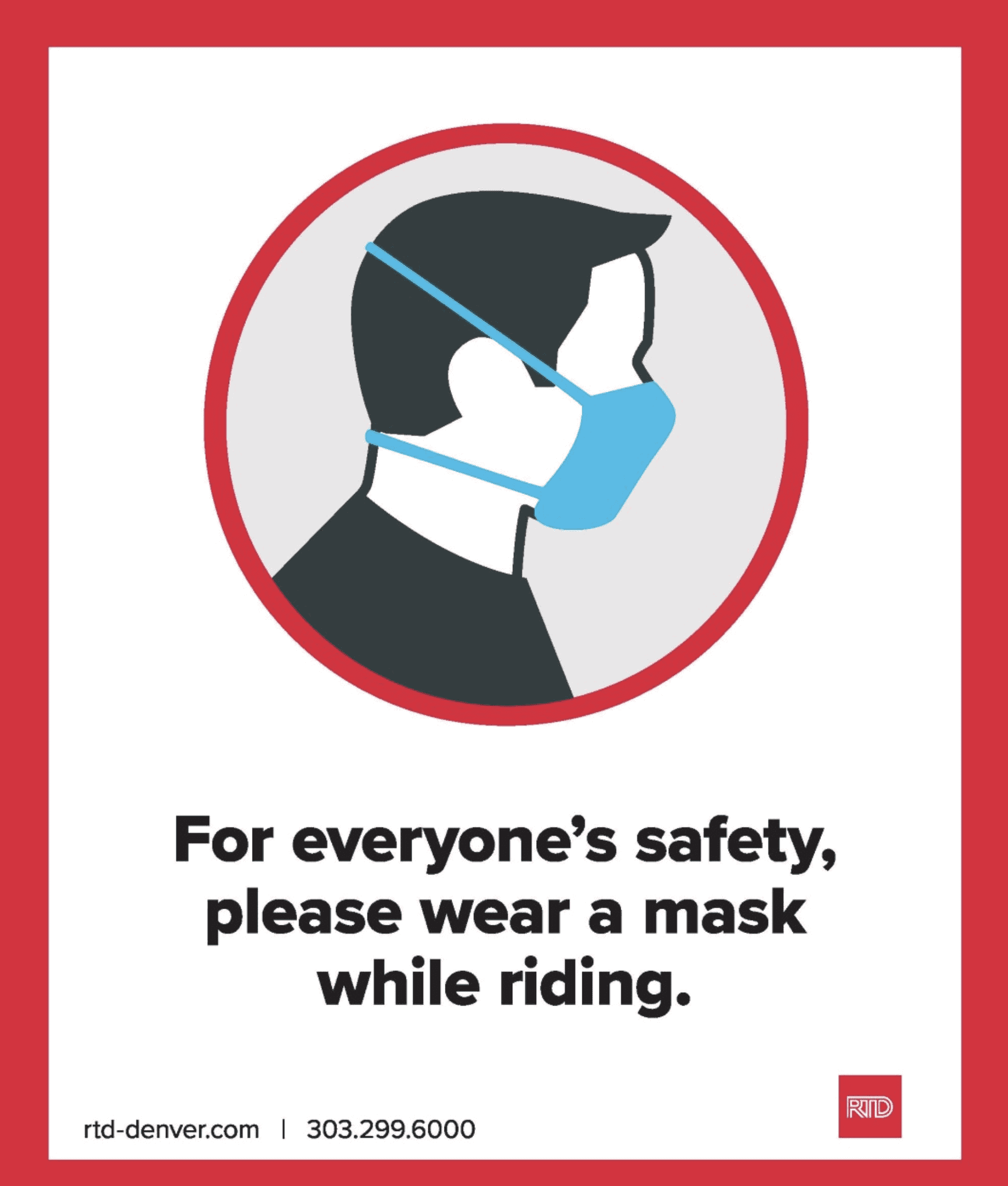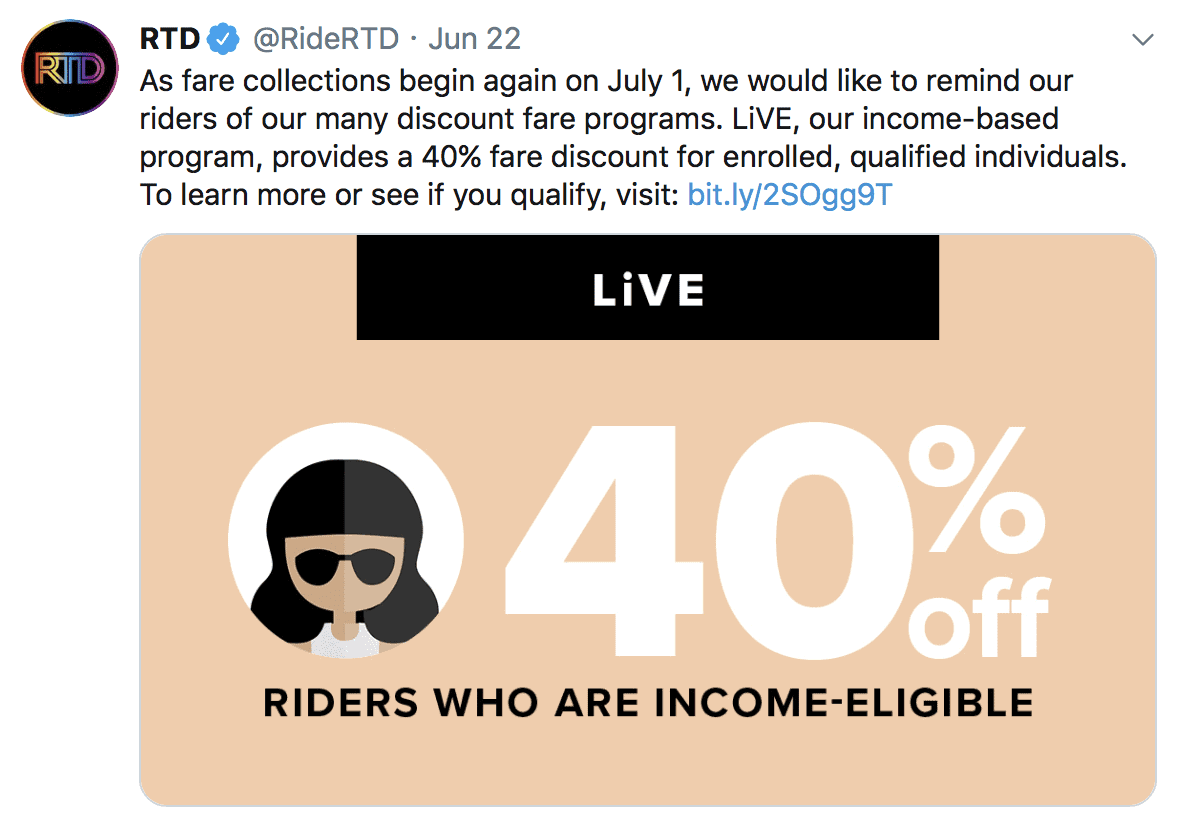As RTD works to get the region moving again, transit and bus service in the months ahead will inevitably look and feel very different. RTD quickly rolled out internal policies to respond to the pandemic, operators and other essential RTD employees remained at work armed with face masks, gloves, hand sanitizers and personal protective equipment. Ridership numbers quickly plummeted, boardings dropped from approximately 350,000 a day to just over 100,000 in a matter of days as Stay at Home Orders went into effect.
RTD rolled out its Pandemic Recovery Plan, the Partners In Safety Campaign launched as riders were encouraged to only take essential trips and urged to wear face coverings. Fares were suspended on April 5th and passengers were only allowed to board at the rear doors, with social distancing reminders posted. A COVID-19 Service Plan went into effect with reduced bus and light rail schedules in response to a significant decrease in ridership. RTD did receive $232 million through the Cares Act and applied the funding to personal protective equipment, cleaning supplies, salaries, and other operating costs.
Suggested Reading:
Fast forward two plus months and RTD is launching a comprehensive three phased campaign instilling confidence in people to return to transit. The campaign is focused on empathy, hope, safety, and shared personal responsibility. Phase 1, We’re All In This Together kicks off Wednesday, July 1st with the resumption of fare collection and front-door boarding. All riders will pay with a ticket, pass, or cash. Drivers are required to wear masks and RTD is asking riders to do the same. RTD is also asking passengers to respect social distancing and to use good judgement and wait for the next ride if a vehicle looks too full.
Phase II, Getting Into The Transit Groove Again and Phase III, Our Region Is Thriving will guide the agency as more people return to public activities and riding transit. The campaigns outline the decision criteria to ensure RTD proceeds safely to service, facilities and internal processes. Phase II and III will implement strategies including videos, digital ads, one-on-one outreach at stations, virtual outreach and stakeholder updates. RTD will also explore the continuation of telecommuting for those who are eligible. This is a trend we will most likely see more of as more companies are evaluating various teleworking options and polices. Our new work from home world is making significant strides towards regional air quality goals and traffic congestion, but conversely this trend will impact RTD’s ridership numbers and budget.
RTD’s loss of fares and sales tax revenues are expected to have significant impacts to the agency from 2021-2026. Cost reductions to date are forcing RTD to reevaluate and defer some projects, delay purchases, renegotiate existing contracts and reduce administrative costs.
As we all reenter the workplace via transit, it is with confidence, patience and grace that we should choose to board public transit and understand that RTD is working with great passion and resiliency to get our region moving again. For more information visit www.rtd-denver.com/



